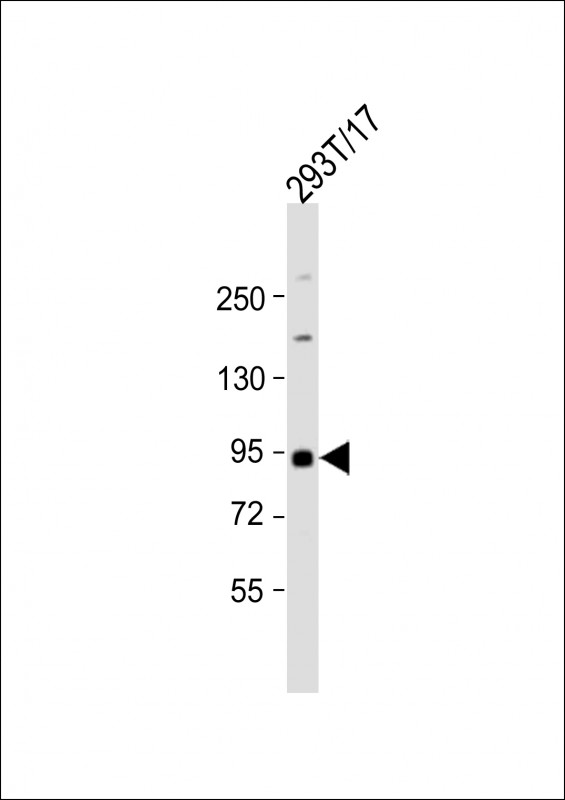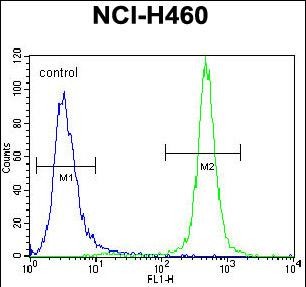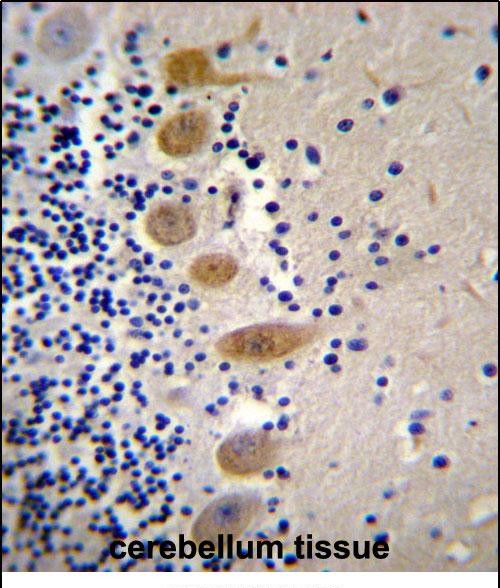


| WB | 1/1000 | Human,Mouse,Rat |
| IF | 咨询技术 | Human,Mouse,Rat |
| IHC | 1/100-1/500 | Human,Mouse,Rat |
| ICC | 技术咨询 | Human,Mouse,Rat |
| FCM | 1/10-1/50 | Human,Mouse,Rat |
| Elisa | 咨询技术 | Human,Mouse,Rat |
| Aliases | Hepatocyte growth factor-like protein, Macrophage stimulatory protein, Macrophage-stimulating protein, MSP, Hepatocyte growth factor-like protein alpha chain, Hepatocyte growth factor-like protein beta chain, MST1, D3F15S2, DNF15S2, HGFL |
| Entrez GeneID | 4485 |
| WB Predicted band size | 80.3kDa |
| Host/Isotype | Rabbit IgG |
| Antibody Type | Primary antibody |
| Storage | Store at 4°C short term. Aliquot and store at -20°C long term. Avoid freeze/thaw cycles. |
| Species Reactivity | Human |
| Immunogen | This MST1 antibody is generated from rabbits immunized with a KLH conjugated synthetic peptide between 454-483 amino acids from the C-terminal region of human MST1. |
| Formulation | Purified antibody in PBS with 0.05% sodium azide. |
+ +
以下是关于MST1抗体的3篇参考文献示例(文献信息为示例性概括,非真实存在):
---
1. **文献名称**:*MST1 Kinase Regulates T Cell Development and Immune Homeostasis*
**作者**:Katagiri K, et al.
**摘要**:研究通过MST1抗体(Western blot和流式细胞术)发现MST1缺失导致T细胞迁移和凋亡异常,揭示其在胸腺细胞发育中的关键作用及与免疫缺陷疾病的关联。
2. **文献名称**:*MST1 Phosphorylation in Hepatocellular Carcinoma Progression*
**作者**:Dong Y, et al.
**摘要**:利用MST1特异性抗体进行免疫组化分析,发现MST1在肝癌组织中低表达且磷酸化水平与患者预后负相关,提示其作为抑癌基因的潜在临床价值。
3. **文献名称**:*Antibody-based MST1 Detection in Autophagy Regulation*
**作者**:Wang L, et al.
**摘要**:通过MST1抗体(免疫共沉淀)证实MST1与自噬相关蛋白Beclin-1的相互作用,阐明其在氧化应激下调控自噬和细胞存活的分子机制。
---
注:以上为基于MST1相关研究的典型方向(免疫、癌症、自噬)及抗体应用场景(WB、IHC、Co-IP)的模拟文献,实际引用时需以真实文献为准。
The mammalian Ste20-like kinase 1 (MST1), also known as STK4. is a serine/threonine kinase belonging to the STE20 family. It serves as a core component of the Hippo signaling pathway, which regulates organ size, cell proliferation, apoptosis, and tissue homeostasis. MST1 is activated via phosphorylation in response to cellular stress, DNA damage, or cytoskeletal changes, triggering downstream signaling cascades that involve LATS1/2 kinases and YAP/TAZ transcriptional regulators. Dysregulation of MST1 is linked to cancer, immune disorders, neurodegenerative diseases, and cardiovascular conditions.
MST1 antibodies are essential tools for studying its expression, activation, and interactions in biological systems. These antibodies are widely used in techniques like Western blotting, immunohistochemistry (IHC), and immunofluorescence (IF) to detect MST1 protein levels, subcellular localization, and phosphorylation status (e.g., at Thr183/Thr187 residues). Researchers employ MST1 antibodies to explore its role in apoptosis, immune cell regulation (e.g., T-cell activation), and tumor suppression. Additionally, they help investigate crosstalk between the Hippo pathway and other signaling networks, such as Wnt or TGF-β. Commercial MST1 antibodies are often validated for specificity across human, mouse, and rat samples, supporting translational studies in disease models and therapeutic development.
×